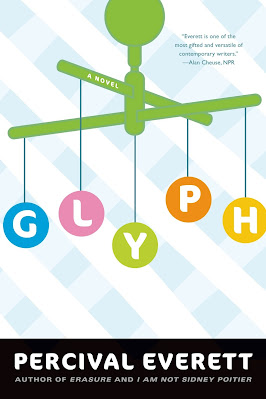This book had me engaged and fascinated from start to end. It is Hernan Diaz’ second novel after his much acclaimed, In the Distance from 2017, which was a Pulitzer finalist.
It is a story, a very intriguing, ingeniously crafted, multi-layered, highly intelligent, complex story about immense wealth, money, love and tragedy told in four distinct but connected narratives. It is a novel about empires, crashes, husbands and wives, immense fortunes and great misery.
Retelling the same story from different angles it opens with a novel inside a novel called Bonds which transports us back to the Roaring Twenties and subsequent Depression. The author of this buttercream fiction, too rich in every way, but pleasantly so, is one Harold Vanner. There are hushed mansions, gilded cages and eery sanatorium scenes which could come straight out of The Magic Mountain. In heavily descriptive, omniscient, sometimes melodramatic early 20th-century style, reminiscent of Edith Wharton or Virginia Woolf, we learn of the life of an reclusive who, in the years leading up to the Great Depression, through his cunning and seemingly preternatural understanding of the stock market, rose to one of the most obscenely rich men in the U. S. His good luck is only counteracted by the mental and physical decline of his wife. The titular Bonds could refer to either monetary instruments or familial attachments.
Bonds is followed by My Life, the draft of the memoir of Andrew Bevel, an autobiography in progress. Bevel is a very successful and famous New York financier, clearly the model for the tycoon in Bonds and we find many parallels to incidents and characters in Vanner’s novel. It is a rather pompously self-righteous account written in the first person and follows every convention of the bloated autobiographies of tycoons.
This text is followed by A Memoir, Remembered by a striving first-generation Italian American woman named Ida Partenza, now a successful and established writer, then just over 20 years old, a woman at the beginning of a life of her own. The memoir, set in 1938 and written in 1981, promises the clarity of a female third party, a voice refreshingly free of an overblown ego. She tells the story of how Andrew Bevel hired her as a ghostwriter to give shape to his memoir manuscript and to set the record straight because he feels Vanner wrongly painted him as the direct cause of the crash of 1929 and the Great Depression and misrepresented his sweet, simple wife as a gilded-caged creature. Decades after Andrew’s death, Ida returns to his mansion, now a museum, to figure out who Mildred really was. Ida slowly discovers Andrew Bevel’s hidden motives in concealing Mildred’s superior intelligence and her crucial role in expanding his business. Ida’s narrative seems to be so far the most plausible. Through it we begin to see the real Andrew Bevel. Or, rather we think we do.
The last text we get to read is titled Futures. Ida Partenza discovered it in her research and it consists of diary entries from the deceased brilliant wife of Andrew, Mildred Bevel, as she writes about her final days in a Swiss sanatorium. After the novel form, the autobiography and the memoir we finally get to read a primary source. And again everything we thought and assumed after reading the first three narratives begins to shift again. Because of its unfiltered, straight, unpretentious, honest voice this is maybe the most emotionally demanding and touching of the four narratives. As Mildred’s body decays, so do her sentences, which start to fracture from paragraphs down to mere fragments of sentences.
We slowly begin to understand why the novel is called Trust. It is not only about the financial construct, about money, but also about the trust we place into people. And it is about the trust the reader places into the author. Four different voices, four different literary styles, four different disparate perspectives on the same story. As soon as one story ends the truth of everything that came with it is upended by the next story and so forth. Which narrator do we trust? One, all, none? No individual perspective can be trusted. This ingenious quartet of narratives creates layer upon layer of an irresistible puzzle of emotions, believes, sympathies and twists.
The women in the story seem more concerned with getting the details right whereas the men pompously attribute their success to their own grandiosly assumed cunning and superior knowledge or simply to the “roaring optimism of the times” or the claim that “the future belongs to America”. They are no more than priggish narcissists.
This is a novel which incorporates the source of its inspiration as well as the reflection on and the reverberations resulting of it. In short, this is as much a literary treat as an intelligent reflection on literature and writing itself. This is a work of fiction which openly declares to be a work of fiction and describes how the ficticiousness is achieved and how slippery the concept of truth or trust is. It is also a play with narrative conventions.
In her memoir Ida reminisces that she learned the trade from other female authors such as Agatha Christie or Dorothy Sayers : “These women showed me I did not have to conform to the stereotypical notions of the feminine world.… They showed me that there was no reward in being reliable or obedient: The reader’s expectations and demands were there to be intentionally confounded and subverted.” This working method Diaz seems to have incorporated, too.
In its masterful immaculate writing Trust is all about the great American myth of money and how intrinsically close life and money have become entwined. And it makes us aware of how little we perceive or what we can see at all. There is no one truth. In this it is a perfect reflection of our confoundingly complex time.
#robertfaeth, #painterinBerlin, #painting, #art, #bookblog, #bookreviews, #literaturelover, #poem, #poetry








